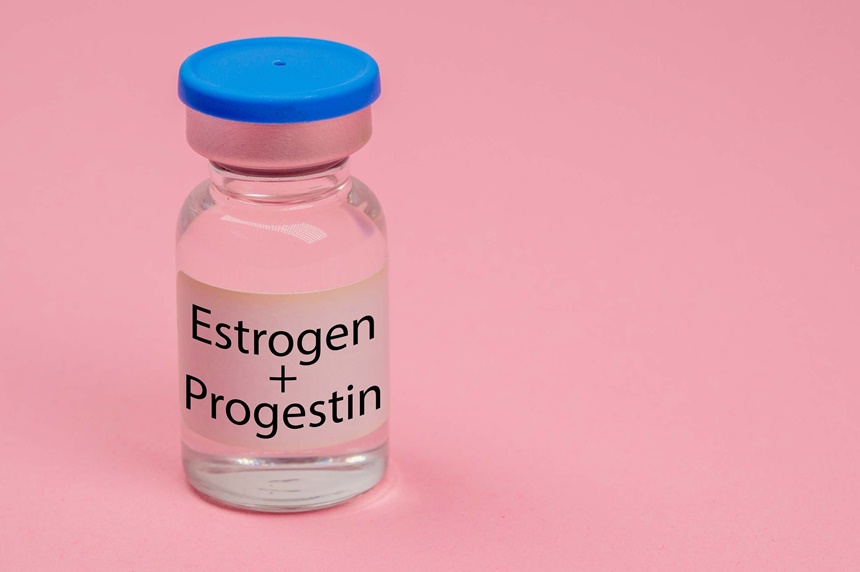“Your Health Checkup” is our online column by Dr. Douglas Zipes, an internationally acclaimed cardiologist, professor, author, inventor, and authority on pacing and electrophysiology. Dr. Zipes is also a contributor to The Saturday Evening Post print magazine. Subscribe to receive thoughtful articles, new fiction, health and wellness advice, and gems from our archive.
Order Dr. Zipes’ books, Ari’s Spoon, a new novel, as well as Bear’s Promise and Damn the Naysayers, A Doctor’s Memoir. Check out his website at dougzipes.com.
A friend asked me recently whether St. John’s Wort would help regulate her hormones to provide relief from hot flashes associated with menopause. Apparently, a girlfriend of hers was taking the supplement and had recommended she take it also. Her query sent me searching for answers about hormone replacement therapy.
Hormones are chemical messengers created by the body’s endocrine glands that stimulate specific cells or tissues in other parts of the body and regulate how and when they function. Hormone replacement therapy (HRT) is used to supplement or replace the hormones made by the body’s glands with duplicates, usually when there is hormonal imbalance that generates symptoms from conditions like menopause or low testosterone. Prescription hormone replacement therapy is available in both synthetic and bioidentical versions; while both are produced in a lab, bioidentical hormones are derived from plant or animal sources, while traditional synthetic hormones are created from man-made compounds. Some bioidentical hormones have recently been approved by the FDA. However, there is no acceptable body of evidence to support the claim that they are safer than traditional synthetic hormone replacement therapy. Both bioidentical and synthetic HRT are available by prescription and done under the supervision of a health care professional who is an expert in endocrinology.
Some HRT therapies tout beneficial actions because they are mixtures of multiple bioidentical hormones and custom designed for specific individuals, claiming advantages over traditional hormone therapy. These compounded hormone therapies are available by prescription from a health care provider and mixed in a special compounding pharmacy, but they are not FDA-approved. Additionally, most are produced in doses and forms that differ from those in FDA-approved products and haven’t been subjected to the same rigorous quality assurance standards that commercially available hormonal preparations have to meet. Some claim that they are custom designed based on a test of a person’s saliva to assess unique hormonal needs. But, unfortunately, the hormone levels in a person’s saliva don’t reflect the levels in the blood, can vary from day to day, and not match symptoms.
In addition to these prescription therapies, use of over-the-counter hormone therapy substitutes (those for which no prescription is necessary) are often sought by individuals who prefer a more holistic or non-pharmaceutical approach, and/or those convinced by ads that proclaim almost miraculously successful outcomes, without professional supervision. They include black cohosh, St. John’s wort, red clover, and many more; and come in many forms including pills, patches, creams, and gels.
Many of these over-the-counter remedies are advertised to be “natural,” implying they are safer than those made in a laboratory because they are derived from animal or plant sources. However, many things that are “natural” are not safe; consider mosquitos (estimated to kill 750,000 people annually) poison ivy, and snake bites. In addition, many products that claim to be natural have also been commercially processed in laboratories.
Hormone therapy substitutes, particularly herbal supplements, can interact with prescription medications or other supplements. It’s vital to inform your healthcare provider about any supplements or therapies you are considering to prevent potential interactions or adverse effects. Individuals with specific health conditions, such as a history of hormone-related cancers or liver disease, may have contraindications for certain hormone therapy substitutes.
It’s also important to remember that many over-the-counter hormone therapy substitutes lack rigorous scientific studies supporting their efficacy and safety. Some lack standardized dosages and regulatory oversight that can make it challenging to determine their effectiveness and safety. Responses to hormone therapy substitutes can vary widely among individuals so that what works for one person may not provide the same benefits for another.
The goal of any medical therapy is to relieve symptoms with the lowest possible medication dose, taken for the shortest amount of time. All hormone replacement therapy comes with risks. While over-the-counter substitutes may provide relief for some individuals, it is essential to approach them with caution and consider their potential risks and limited scientific evidence. Consulting with a knowledgeable healthcare professional is crucial to ensure personalized guidance and the best course of action tailored to individual needs and preferences. Hormone therapy substitutes should be approached as complementary or adjunctive therapies, with regular monitoring and ongoing communication with a healthcare provider.
Finally, it is also important to remember that healthy lifestyle changes can have a positive impact on hormonal balance. Regular exercise, a balanced diet such as the Mediterranean diet, stress management techniques such as meditation or yoga, adequate sleep, maintaining a healthy weight, avoiding alcohol and tobacco use, and attending to cardiovascular risk factors can help eliminate the need for chemical substitutes.
I explained much of the above to my friend and, in the end, recommended that her best option was to check with her gynecologist.
Become a Saturday Evening Post member and enjoy unlimited access. Subscribe now



